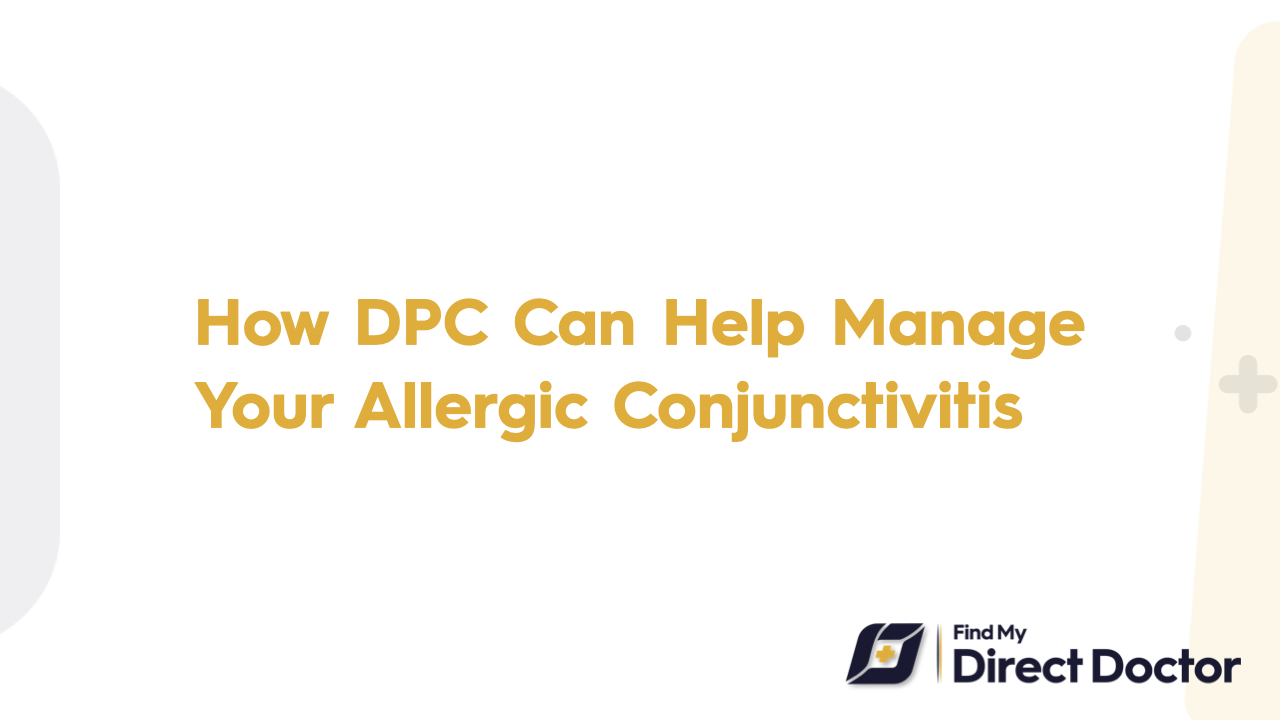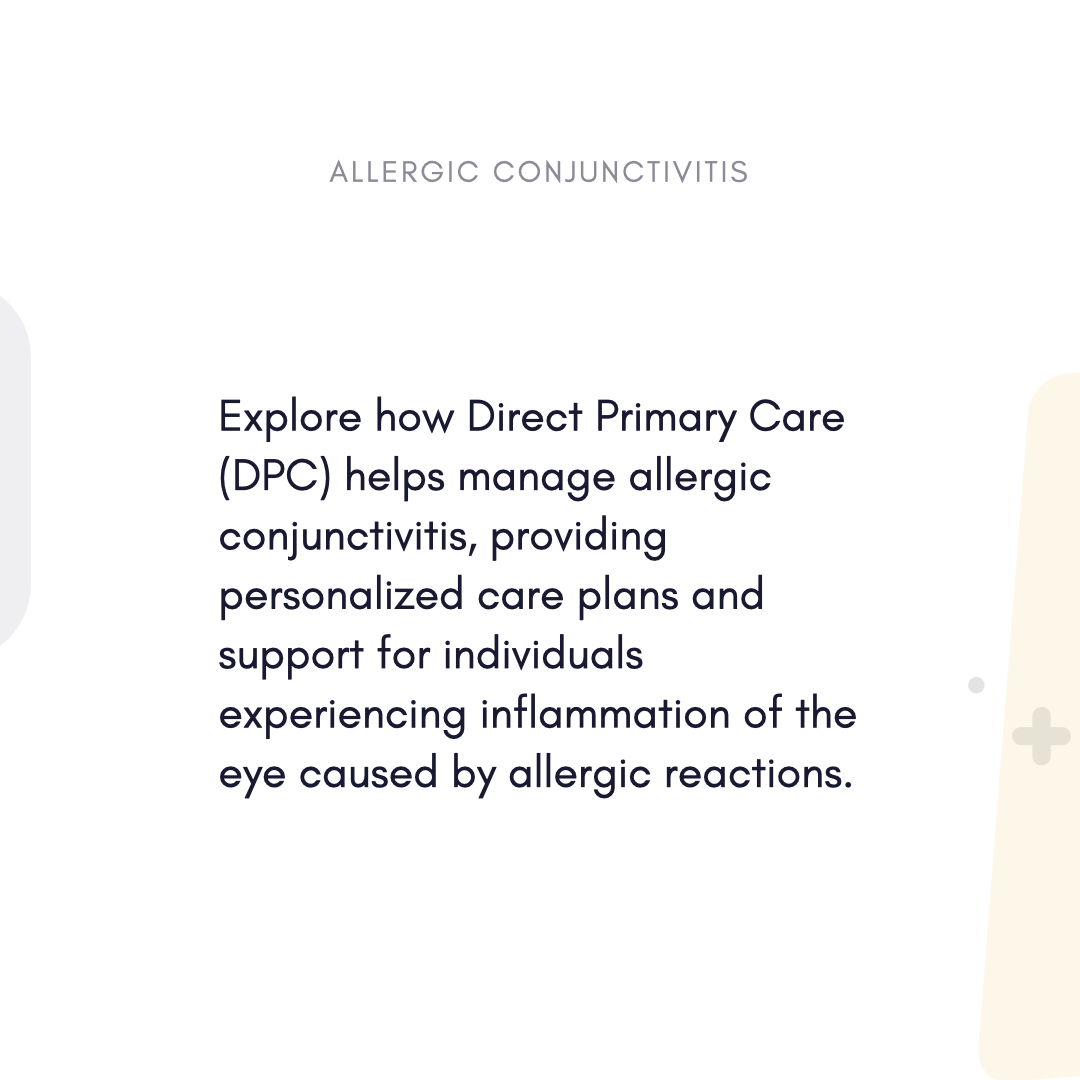



An allergic reaction to an allergen, such as pollen, dust mites, pet dander, or certain medications, causes allergic conjunctivitis, an inflammation of the thin membrane covering the white part of the eye. As well as minimizing exposure to allergens, allergic conjunctivitis management involves relieving symptoms like itching, redness, swelling, and tearing. This article discusses how Direct Primary Care (DPC) can play an important role in effectively managing allergic conjunctivitis.

It is possible to categorize allergic conjunctivitis into several different groups, such as seasonal allergic conjunctivitis (hay fever), perennial allergic conjunctivitis (year-round symptoms), and giant papillary conjunctivitis (contact lens use). If left untreated, itching, redness, watery discharge, and swollen eyelids can significantly affect quality of life.
A DPC model enables patients to access their primary care provider directly without requiring referrals. A thorough medical history, eye examination, and assessment of allergen triggers can be performed quickly to evaluate and diagnose allergic conjunctivitis symptoms.
In addition to treating acute symptoms of allergic conjunctivitis, allergen identification and minimizing exposure will help prevent future flare-ups. To alleviate symptoms and improve comfort, DPC providers offer holistic management strategies, such as patient education, allergen avoidance measures, and pharmacological treatments like antihistamines, mast cell stabilizers, and corticosteroids.
Long-Term Monitoring and Support: Allergic conjunctivitis is a chronic condition that may require ongoing management and monitoring to maintain symptom control and prevent complications. In order to optimize patient outcomes and satisfaction, DPC providers schedule regular follow-up appointments, monitor treatment response, and adjust management plans as necessary.
Identifying and avoiding allergen triggers is essential to managing allergic conjunctivitis. In order to minimize exposure and reduce allergic reactions, DPC providers help patients identify allergens in their environment, such as pollen, mold, dust, or pet dander.
Individualized Treatment Plans: A patient's allergic conjunctivitis treatment may vary depending on how severe the symptoms are and what they prefer. To optimize treatment outcomes and patient satisfaction, DPC providers tailor treatment plans to meet the specific needs of each patient, taking into account factors such as symptom severity, medication tolerance, lifestyle factors, and cost considerations.
Education on Eye Care Practices: Proper eye care practices can help alleviate symptoms and prevent complications in allergic conjunctivitis patients. To minimize irritation and promote ocular health, DPC providers teach patients how to maintain good eye hygiene practices, including avoiding rubbing the eyes, using cool compresses, and keeping contact lenses clean.

The benefits of Direct Primary Care for individuals with allergic conjunctivitis are substantial. The DPC team empowers patients to manage their condition effectively and improve their quality of life through comprehensive evaluation, holistic management approaches, personalized treatment plans, and ongoing support. It is through this patient-centered approach to healthcare that allergic conjunctivitis patients can receive the specialized attention and support they require to cope with their condition.
Previous Post